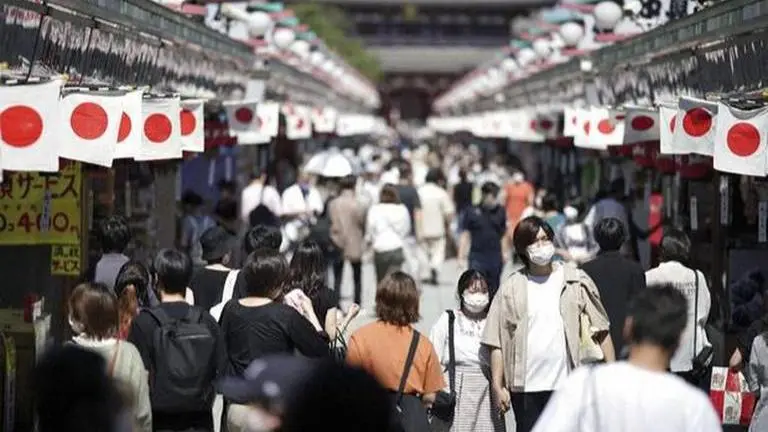Updated 8 April 2023 at 07:33 IST
Japan's 'hikikomori': How social withdrawal has worsened after COVID-19 pandemic
A large number of Japanese are now under the influence of 'hikikomori', a phenomenon of social withdrawal.
- World News
- 3 min read

As many as 1.5 million people of working age in Japan are subconsciously practising COVID-19 era isolation and have cut pre-pandemic level contact and interaction with society, a survey conducted by the Japanese government suggested. According to the Japan Times, a major chunk of the Japanese population has slipped into isolation due to the COVID pandemic wherein people were asked by the government to isolate at home.
A large number of Japanese are now under the influence of 'hikikomori', a phenomenon of social withdrawal. They work from home and have lost interest in their jobs, some have been isolated due to relationship issues that worsened during the lockdown, and others order food remotely and barely leave their homes.
Japanese population, suffering from hikikomori, voluntarily chooses to lead an isolated life with not many social contacts and spend most of their day at home. This accounts for about two percent of the total population aged 15-62 that is still reported to be reeling under the lingering impact of the COVID-19 social and mental crisis.
The survey taken by the Cabinet Office of Japan found that the COVID pandemic has mounted an estimated 20 percent of social recluse cases due to social distancing and mass quarantine. Of the total 30,000 people, those aged between 10 and 69 were living in isolation and many aged 15-39 were facing difficulty in maintaining interpersonal relationships and other forms of ties with society. An estimated 44.5 percent above 39 years of age reported that since the COVID-19 pandemic hit the world, their social behaviour has altered to a great degree. The Japanese government is trying to encourage the citizens to participate more in society by organising events in the capital of Tokyo that would help people socialise.
Ward Mayor Takeshi Saito was reported saying, “We don’t think everything will be solved just because we offer a metaverse. It’ll probably be helpful for some people.”
“We’re targeting those who can’t leave their rooms and haven’t been interacting with other people. We want to help them take a step forward," he added.
How COVID-19 impacted mental health
The devastating COVID-19 pandemic has severely impacted young people and women psychologically, as well as financially as most of the population was left in isolation, according to a YouGov survey. Few people were considering changing their lives as a result of the impact the global health crisis had on their mental health, even as the pandemic's ripple effects started to wane, it was reported.
Advertisement
The young population in as many as 27 nations was consistently more likely impacted mentally than elders due to COVID-19, which also deteriorated the general quality of living, the YouGov-Cambridge Globaloism project's data found.
The survey stated that in France, an estimated 47% of people aged 18 to 24 had their mental health impacted due to the pandemic, and only 25% were aged 55 or older. In several other nations in Europe and across the globe people, reported a sense of isolation and psychological decline. In Germany, at least 38% of young people said that the COVID-19 pandemic put their overall mental health in a poor state as compared to 22% of older adults.
Advertisement
Published By : Digital Desk
Published On: 8 April 2023 at 07:33 IST
